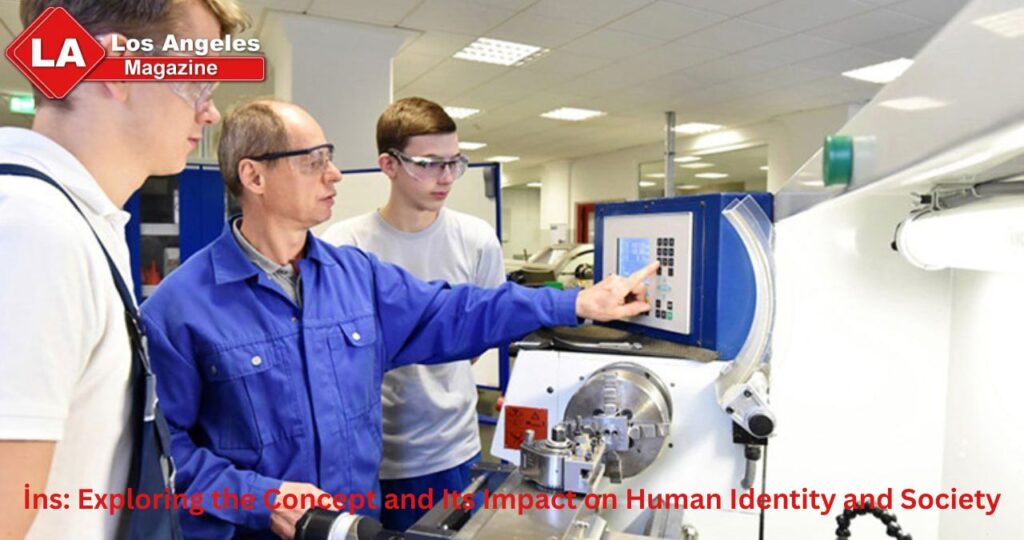The term İns might not immediately ring a bell to many people around the world, but it holds deep roots in various philosophical, cultural, and scientific discussions. In its most literal sense, İns is derived from the Arabic word “إنس” (Ins), which translates to human beings or mankind in English. However, the term transcends mere linguistic definitions and delves into a realm of existential inquiry, where it touches on questions about human nature, consciousness, and our role in the world.
This article explores the meaning of İns, its cultural and philosophical interpretations, and its relevance in modern society, reflecting on the idea of human identity and the societal structures that shape our understanding of what it means to be human.
Understanding İns: A Philosophical Perspective
In the Islamic philosophical tradition, İns is not just a term used to refer to human beings but also embodies a deeper philosophical and spiritual concept. The word is often discussed in the context of human nature—the nature of the soul, consciousness, and the human quest for purpose in life.
The concept of İns is explored in various classical texts, including the Quran, where humans are distinguished from other living beings due to their capacity for reason, free will, and moral responsibility. İns in this sense is not merely an animalistic existence; humans are endowed with the ability to make ethical choices, reason through complex problems, and engage in relationships with a sense of empathy and understanding.
In Islamic theology, İns is frequently contrasted with Jinn, a supernatural entity in Islamic belief. While İns are human beings, Jinn are invisible creatures with free will, but they are not bound to the same physical limitations as humans. The interplay between these two entities serves as a powerful metaphor in Islamic thought, symbolizing the existential tension between the material and spiritual realms.
İns and Its Role in Human Identity
The question of human identity has been central to philosophy, psychology, and sociology for centuries. İns represents not only a physical being but also a complex entity that consists of emotions, thoughts, and actions that are influenced by both external factors and internal motivations. In many philosophical traditions, the study of İns leads to deep reflections on the mind-body relationship, human consciousness, and self-awareness.
The pursuit of self-identity is often intertwined with existential questions such as “Who am I?” and “What is the purpose of my existence?” These questions have been central to the thoughts of philosophers like Socrates, Nietzsche, and Sartre. However, in Islamic thought, as well as in many other cultural contexts, İns is also seen through a spiritual lens, where the self is connected to a divine being. Here, humans are not just individuals defined by their physicality or material success but are viewed as souls on a journey toward spiritual fulfillment.
Furthermore, İns is often explored in connection with the concept of duality: the tension between body and soul, reason and passion, the physical world and the spiritual world. This dualism helps explain the complexity of human beings, who are constantly navigating between different aspects of their identity. In modern psychology, this duality manifests in the study of the conscious and unconscious mind, further emphasizing the complexity of what it means to be truly human.
İns in the Social Context
The role of İns in the context of human society is equally important. Social identity plays a crucial role in how individuals perceive themselves and how others perceive them. From a sociological perspective, İns is not just an isolated individual but also a social being whose identity is shaped by interactions with family, community, and the broader societal structures.
In many societies, the concept of İns is intertwined with the family unit, as family plays a central role in shaping an individual’s values, beliefs, and behaviors. The larger society also imposes norms, traditions, and expectations that further influence the development of an individual’s identity. From the perspective of social contract theory, individuals are seen as part of a collective agreement, contributing to the welfare of society in exchange for rights and protections.
Modern sociology also addresses the influence of technology and media on the concept of İns. In the age of social media and digital communication, identity has become more fluid. People can curate their lives and identities in ways that were not possible before, leading to both positive and negative consequences. The notion of İns in the digital age is complex, as it challenges the boundaries between the real self and the virtual self. The question arises: How does technology shape the understanding of who we are as human beings? The answer lies in the evolving nature of identity itself, where İns is becoming a dynamic construct in the digital landscape.
İns and Its Influence on Modern Thought and Innovation
The relevance of İns extends into the realms of science and technology, particularly when examining advancements in artificial intelligence (AI), neuroscience, and genetics. With the development of AI and robotics, the question of what it means to be human has been raised more than ever before. Can a machine ever truly replicate human consciousness and emotions? Can AI be considered an extension of İns?
Neuroscientists are also diving deeper into understanding the biological underpinnings of the human mind—the neural pathways that govern behavior, thought, and emotion. As we uncover more about the brain, the very definition of İns is being reshaped. Are we merely biological organisms, or is there something transcendent and spiritual that defines us? These inquiries connect İns to the ongoing search for human meaning and purpose, questions that have driven innovation for centuries.
Genetics also plays a role in how we perceive İns. Advances in genetic engineering and biotechnology have made it possible to explore the very fabric of human existence, leading to discussions about the ethics of genetic modification and cloning. If we are able to alter the genetic code that defines us, does that change the essence of İns? Does it change what it means to be human?
İns in a Globalized World
In today’s globalized world, the concept of İns is more relevant than ever. As cultures, societies, and ideas intersect through globalization, the definition of İns is continually evolving. In some cultures, the focus remains on community, collective identity, and spiritual fulfillment, while in others, individualism and material success are at the forefront.
The global consciousness is shifting toward greater recognition of diversity and the need for cultural understanding. This means that while the concept of İns may vary across cultures, there are common threads of empathy, morality, and spirituality that connect all human beings. Whether in the context of international diplomacy, humanitarian aid, or global movements for equality, the idea of İns—as a human being with inherent dignity and value—remains central to addressing the challenges we face as a global society.
Conclusion
The concept of İns goes far beyond a simple definition of human beings. It encapsulates a profound exploration of human nature, consciousness, society, and identity. From its philosophical and spiritual implications to its role in modern technology and globalization, İns continues to shape the way we understand what it means to be human.
As we move into the future, the exploration of İns will only become more relevant, particularly as new scientific discoveries and technological advancements challenge traditional notions of identity and existence. Ultimately, İns serves as a reminder of the complex, multi-dimensional nature of humanity and our shared quest for meaning, connection, and purpose.



